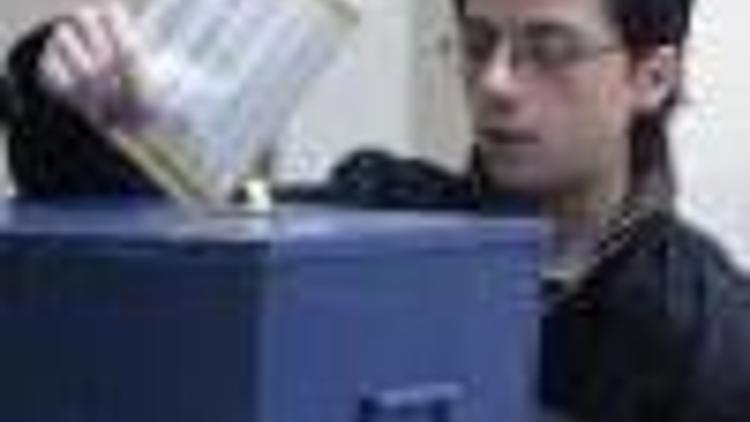Bosnians vote in poll expected to seal hardliners
Güncelleme Tarihi:

Bosnians are to cast ballots tomorrow in the fourth postwar local elections, which are expected to confirm the dominance of the ruling nationalists in this ethnically divided Balkan country.
Some 3 million Bosnians are eligible to elect municipal councils in 149 towns and cities and 140 mayors, after a campaign marked by widespread nationalistic rhetoric and an almost absolute neglect for issues of local interest.
“Hardline parties use nationalistic rhetoric, since it’s a card that always wins,” Sanel Huskic of the Sarajevo-based think tank ACIPS told AFP.
“They know that people here still vote by their hearts not by their heads.” ACIPS’s survey, which had screened over 5.000 statements of political parties during the campaign, showed that 74 percent of them dealt with general issues that have nothing to do with municipal elections. “They talked about the country’s constitution, census or European integration,” Huskic said.
Some 24 percent of statements referred to local issues, but politicians offered concrete programs on how to improve life in local community in only 2 percent of public statements, he noted.
“Nationalist rhetoric is a perfect excuse for not having any vision or strategy for the prosperity of this country,” political analyst Tanja Topic told AFP.
Topic and other analysts fear low turnout as a result of growing apathy among voters. Turnouts for Bosnia’s postwar elections have been declining constantly. Less than 50 percent of Bosnians cast ballots in the last elections general election two years ago.
“By staying at home on election day, voters send a clear message that they are very dissatisfied with all existing political options,” Topic said, adding that the turnout could be the lowest ever.
The campaign reflected the tense political situation in place ever since the 2006 general elections which propelled into office two key figures – the chairman of Bosnia’s tripartite presidency Haris Silajdzic, a Muslim, and Bosnian Serb Prime Minister Milorad Dodik. The two have continued to dominate political life in the country. Their once moderate parties are now seen as the most hardline in the ruling coalition that also includes Croat and Muslim nationalist parties that led the 1992-1995 war.
Analyst agree that the two leaders benefit from each other’s rhetoric. “Ever since 2006, we see a ping-pong politics between Sarajevo and Banja Luka,” Topic said referring to the Silajdzic’s and Dodik’s headquarters respectively. The two politicians “present a perfect match, they really work for the benefit of each other,” she stressed.
“They know that deepening ethnic divisions would provoke homogenization on an ethnic basis, so they continue to work on it.” No relevant survey on the election outcome has been published, but Dodik’s Social Democrats are widely expected to confirm their dominance in Bosnia’s Serb-run half of Republika Srpska.
In the October 2004 municipal elections, the party had a strong showing and it has been strengthening ever since.
The nationalist Muslim Party of Democratic Action (SDA) and Silajdzic’s SBIH are likely to win in the mainly Muslim areas, while the nationalist Croat parties – the Croat Democratic Union (HDZ) and the HDZ 1990 – are expected to share power in Croat-dominated municipalities.
Since the 1992-1995 war, Bosnia consists of two semi-independent entities – the Muslim Croat federation and the Serbs’ Republika Srpska. They are linked by weak central institutions while each has its own government.
The ruling nationalist coalition on the national level failed to carry out reforms required by the EU and wider international community.
Bosnia signed a stabilization and association agreement with the EU last year, seen as the first step toward membership in the bloc, after a long delay in fulfilling required conditions.
The country is still recovering from the devastating war that left at least 100,000 dead and forced 2.2 million – over half the population – out of their homes. Under the peace deal, foreign peacekeepers have been deployed here to provide security and the international community’s high representative, currently Slovak diplomat Miroslav Lajcak, supervises implementation of civil aspects of the accord.
The number of foreign troops has been gradually reduced along with the improved security situation. The EU force (EUFOR) currently has 2,100 troops deployed in Bosnia.
Photo: Reuters

